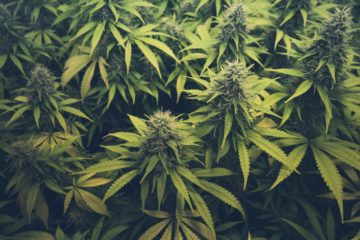
OxPol Blogcast Episode 3: Drug Legalisation Referendums
Welcome to the OxPol Blogcast, a podcast where we will be sharing research, analysis, and experiences from members of the University of Oxford’s Department of Politics and International Relations. On each, episode we will talk to a guest about a piece they’ve written for the OxPol Blog. Then, we’ll discuss their larger research agenda, their insights on conducting political science, and their time at Oxford. On the 3rd episode of the OxPol BlogCast, host Chase Harrison talks to recent DPhil graduate Jonas von Hoffman about the results of recent drug legalisation referendums in the United States. We compare those to legalisation movements across the Americas before chatting about his experience studying a more taboo topic in academia.

Marijuana Legalization by Blunt Force: A Decade of US Policymaking through Ballot Initiatives
Election day 2020 was another big moment for drug policy reform in the US as voters across diverse states rejected the status quo and endorsed liberalizing drug laws. Arizona, Montana, New Jersey and South Dakota legalized marijuana for recreational purposes as the news proclaimed voters had “just said no to America’s war on drugs,” calling it “a banner year for drug decriminalization.” That election day brought significant wins for drug policy reform is not new. Beginning in 2012 with Colorado and Washington state, 13 out of the 15 states that have legalized recreational cannabis thus far have done so through ballot measures.[1] In 2014, Alaska and Oregon followed suit along with Nevada, Massachusetts, Maine and California in 2016 and Michigan …

Uruguay’s Government is in danger. Its marijuana legalization may be safe.
When Uruguayans head to the polls for the second-round of the Presidential elections on 24 November, they are not only deciding on the next government but also the future of legal marijuana. In 2013, Uruguay became the first country in the world to legally regulate cannabis from seed to smoke. Despite international acclaim, cannabis reform was highly controversial in Uruguay. Public opinion overwhelmingly rejected the reform and the bill passed both the lower and upper houses of Congress with votes exclusively from the left-of-centre Broad Front. Notwithstanding its past, marijuana legalization’s future seems surprisingly safe, in spite Broad Front being in danger of losing the presidency it has occupied since 2005. In the first round on 27 October 2019, Broad …

Hawk, Dove, Eagle or Headless Chicken? US Foreign Policy under Trump
In early September, President Donald Trump lost his third National Security Adviser, John Bolton. Since then it emerged that the two clashed over a number of issues, with the former advocating for US intervention in a number of countries and the latter favoring a less confrontational approach. Reportedly, Trump quipped that “if it was up to John, we’d be in four wars now.” In fact, the president has repeatedly stated his aversion to foreign (mis-)adventures. Trump’s “America First” approach to foreign policy has been at odds with Bolton’s “America Everywhere” approach from the outset. Why, then, did a president with such dovish tendencies chose a hawk’s hawk as National Security Adviser? What does the ouster of John Bolton tell us …

What a probable Jamaica coalition means for possible cannabis legalisation in Germany
On September 24th, Germans elected a new parliament. The CDU/CSU won 32.9%, the SPD 20.5%, the AfD 12.6%, the FDP 10.7%, the Green Party 8.9%, Die Linke 9.2%. This outcome, resulting in the presence of six parties in the Bundestag, will complicate the formation of a new governing coalition. The right-wing Alternative für Deutschland (AfD) will enter the German Bundestag for the first time, but is politically shunned by other parties. Die Linke is ideologically too far removed from the Conservatives to ever govern with them. The once proud and mighty German Social Democrats (SPD) have been humbled by the election. In consequence, the Social Democrats have announced their intention to go into opposition. Angela Merkel’s Christian Democrats (CDU/CSU), while …

America’s Other Vote: Cannabis Legalisation on the Ballot
Casual observers and the millions who have tuned in to watch the Presidential debates might be unaware of the other important vote taking place tomorrow: cannabis legalisation. While the omission of any question on climate change during the three Presidential debates garnered widespread attention, the legislation of this soft drug was the second major absentee in the televised clash between Hilary Clinton and Donald Trump. On November 8th, US citizens will not only elect a new President; initiatives to legalise recreational cannabis are also on the ballot in five states. There is a good chance that disappointed Trump or Clinton supporters will be able to drown their sorrows with legal marijuana in California, Nevada, Massachusetts, Arizona and Maine. The map …










